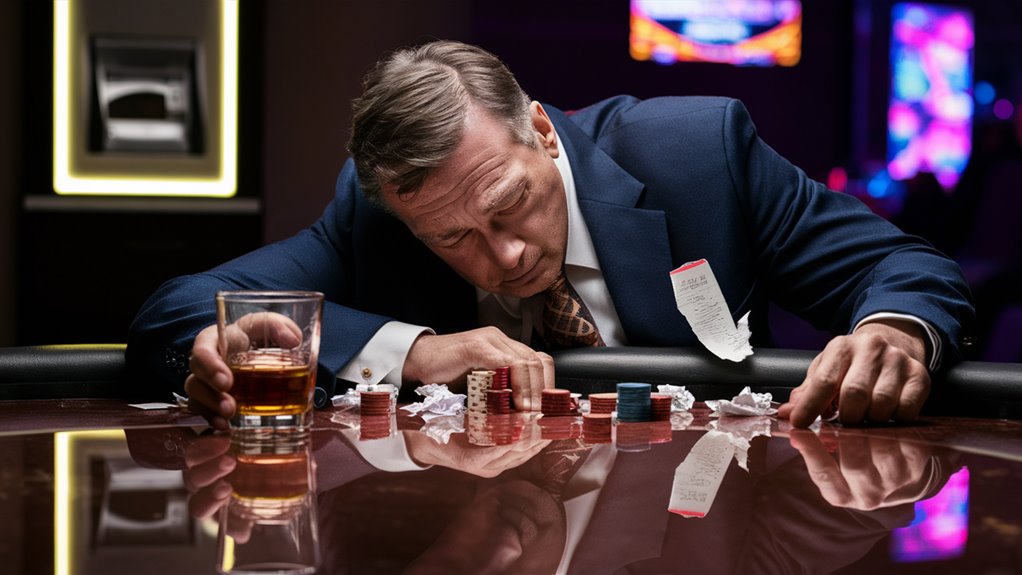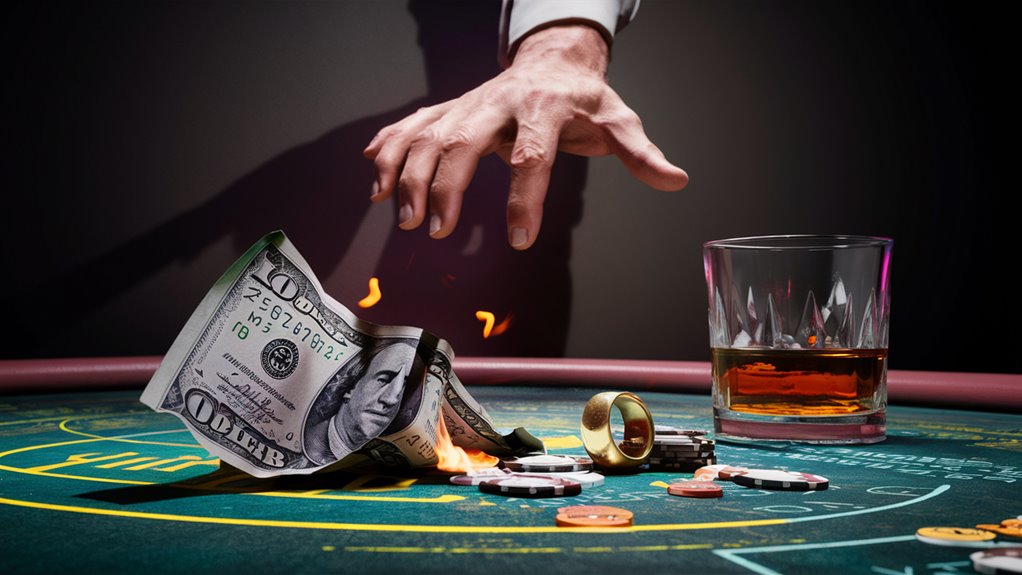
Why Gamblers Chase Losses
Why Do Gamblers Keep Betting After They Lose? The Brain Reasons

The Brain and Betting
When gamblers lose, their brain acts up. Two parts – the amygdala and the insula – make them feel bad. This feeling is twice as strong as the joy of winning. 온카스터디 공식파트너 확인
Why They Can’t Stop
This big upset messes with the prefrontal cortex, where we think clearly. Gamblers think they must keep betting to win back what they lost.
Dopamine and Fear Mix
The brain gives out dopamine in tight games, making gamblers hope. This, with the rush from fear, makes them keep trying despite losing more.
How to Stop the Cycle
To quit, we need to know how our brains trap us in this cycle. Seeing the trap can help gamblers make better choices and stop.
We Hate Losing More Than We Love Winning
Losing Hits Hard
We hate losing. It makes us feel way worse than winning makes us feel good. Losing $100 hurts more than getting $100 feels good.
What Happens in the Brain
Faced with losses, parts of our brain light up. The amygdala and insula make us act fast without much thought.
Losses and Gambling
In gambling, losing once makes the next bets riskier. It’s a trap where more losses mean more bets.
The brain’s setup for hating loss makes gamblers bet even when it doesn’t make sense.
Big Dangers
- Emotions mess up our thinking.
- Taking more risks to win back losses.
- Bad choices because the brain is off track.
- Trying too hard leads to bigger losses.
When Past Losses Drive Us
Thinking past bad bets help the next ones is a trap. It makes gamblers think they’re due to win, which isn’t how it works.
Knowing these traps can help us make smarter moves. Focusing on real odds and the now can stop bad bets.
The Feelings That Make Gamblers Chase Losses

The Draw of Betting More
Losses stir up tough feelings. Shame, worry, and a sense of failing can cloud thinking.
Brain Reactions Keep Us Hooked
The brain parts that make us feel good light up a lot when we lose. The hope of winning back losses keeps us in the game.
Wanting to fix losses makes stress rise, messing up good judgment.
How Emotions and Habits Mix
The mix of feelings and coping ways traps many in more betting. Betting feels like an escape but just brings more loss.
Accepting losses might feel worse but can stop the cycle of bad betting.
Better Ways to Handle Losses
Knowing these feelings helps find new paths out of losing. We need plans that handle both why we feel and act certain ways.
Signs a Gambler May Need Help
Clues of Problem Gambling
Seeing early signs can stop worse trouble.
Key signs include:
- Betting more than planned.
- Lying about betting.
- Borrowing money for bets.
- Feeling down when not betting.
What Makes It Risky
Mood issues and bad stress handling are linked to problem gambling.
Those with family addiction history or who started betting young are more at risk.
What Sets It Off
Where we are and who we’re with matter in betting actions:
- Close to betting spots.
- Friends who bet.
- Seeing lots of betting ads.
- Having money trouble.
- Big changes in life.
The ease of betting and social pushes can make it hard for some.
Paths Out of Endless Betting
Knowing Risks and Blocking Them
The cycle of losing and trying to get it back is a risky chain.
Breaking it needs strong plans and moves.
Setting Money Rules
Clear money rules help us bet safely:
- Leave credit cards.
- Set spending limits.
- Only use cash.
- Keep betting money apart.
Tracking Bets
Writing down wins and losses shows patterns:
- How much we win or lose.
- What sets us off.
- How long we bet.
- Where we are.
Thinking Better
Handling Past Cost Ideas
Understanding the pull of past costs helps break the betting loop. Key ideas include:
- See losses as done.
- Keep past and now apart.
- Tell feelings from smart choices.
With Help, We Fight Better
Getting help shows real results:
- Therapy – 60-75% better chance.
- Programs to lay off betting.
- Help with money choices.
- Family joining in.
Support to Stay Better
Staying with help ups benefits:
- Regular talks.
- Buddies who help keep us in line.
- Eye on money moves.
- Trying mindful ways.
A full plan that tackles both minds and moves lifts us out of the loss chase, backed by studies and real stories.
Recovery and Smart Betting Ideas
# Finding Ways Back and Betting Smart
Tested Recovery Paths
Programs that block betting are a first big step. They keep us from both real and online betting spots.
A full fix plan stops slip-ups when we’re weak.
Guidance and Therapy
Teaming up with a trained gambling helper guides us.
Therapy, like CBT, changes how we think about betting and builds new, healthy habits.
With help, we learn to catch and handle things that push us to bet.
Watching Our Money
Strong money rules are key. Smart moves include:
- Others watching our money.
- Auto bill pay.
- Just enough cash.
- Careful budgets.
- Watch all money moves.
Friends and Help Groups
Groups like Gamblers Anonymous give us team support. Going often gives:
- Shared tips.
- Helping buddies.
- Help for the long run. How to Get the Best Return on Investment in Online Sports Betting
- Quick help in a tight spot.
New Fun Things
Finding new fun doings helps fill needs we met with betting:
- Workouts.
- Sports.
- Creative work.
- Group fun.
- Learning new stuff.
These swaps keep us strong, help us grow, and push off betting.

